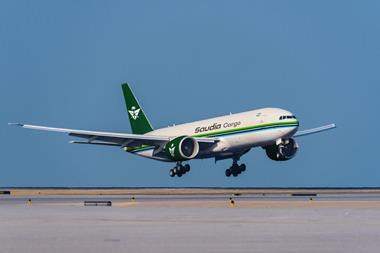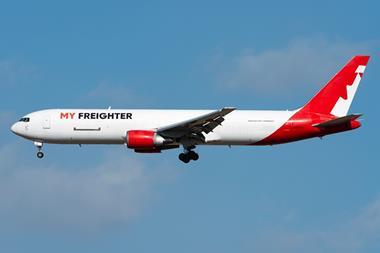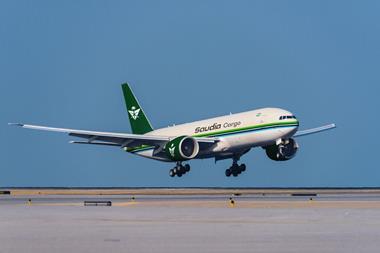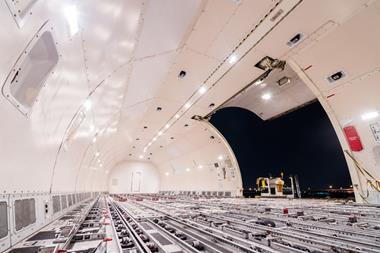Freight forwarders are bracing for a busy peak period by securing air cargo capacity under block space (BSA) and ACMI agreements.
Speaking shortly after announcing third-quarter results, Panalpina said it expected capacity to be an issue while slot constraints at airports, a veiled reference to the issues at Schiphol, would also create problems for supply chains during the peak.
Panalpina chief executive Stefan Karlen described the market as difficult.
“By difficult I mean a new dynamic where capacity is an issue,” he said. “slot restrictions are applying and all of this makes the complete market environment [tougher] than we have been used to in the past.”
“Growth is particularly strong on Far East eastbound, westbound and transpacific eastbound.
“We have certainly done our homework and are well prepared. Since the beginning of the year we have taken steps to secure capacity, such as negotiating peak capacity with carriers, increasing our BSAs, securing capacity through alternative airports and we have secured 100 charter flights [utilising its own charter network].”
Karlen said that it had secured around 85% of the capacity it believed it would need for the peak, while the remaining 15% would come through the spot market.
Panalpina said it expected to feel the capacity issues the most on European operations, which are also affected by the slot constraints at airports.
Karlen added: “We are in very close contact with carriers and, with the aircraft we are operating ourselves under ACMI, we have made sure we have alternatives.
“[Europe’s] extensive road feeder service gives us the ability to connect and offer the services to our customers with the least impact on our transit time.”
While the forwarder is expecting a strong peak, it predicted that year-on-year percentage growth would weaken in the fourth quarter because the strength of the market last year will have a negative impact on comparisons.
Earlier this week, Kuehne+Nagel said it had also secured ACMI capacity after seeing demand increase by more than 20% in the third quarter of the year, which equates to seven extra full Boeing 747Fs per day.
Detlef Trefzger said that while it regularly utilises ACMI capacity, it has increased the amount secured this year, particularly for China exports.
As a result, it is not expecting to face the same capacity squeeze it faced last year on exports from China.
On the Schiphol slot shortage, Trefzger said it had a couple of hubs in Europe and could switch between those if capacity does become tight.
Earlier this year, Dachser sent out a customer note stating that it had secured extra charter capacity for the peak season, while in September DHL’s forwarding arm announced that it would begin operating an ACMI airfreight operation utilising B747F capacity.
The topic also came up at a recent panel discussion at the Freighters World conference, with all-cargo executives saying they had noticed an increase in the number of forwarders and e-commerce companies looking to secure freighter capacity rather than rely on belly space.
Nippon Cargo Airlines president, Americas, Shawn McWhorter said: “Amazon could have taken the approach to go to Delta, go to United, and say let me buy all your belly capacity – why didn't they do that?” McWhorter questioned.
“Because it doesn't give the service commitment that they need to their customer on a regular basis – they can't control the network.
“So instead they went to a more expensive solution, but one that is more customer focused, and put their own network up.
“Now we are seeing more and more demand as an all-cargo carrier, that forwarders come to us and say we want to buy a piece of your network, not just a couple of positions or half a plane, we want you to run a network for us.
“Atlas is flying a couple of round the world flights for DHL, was that because DHL couldn't find enough capacity on the bellies? No, it is because the capacity wasn't in the right markets at the right time at a control point that they can give the required service to the customer.”
The trend is being driven by a tighter balance between supply and demand meaning forwarders cannot as easily buy on the market and benefit from low prices, he said.
Read more freight forwarder news










